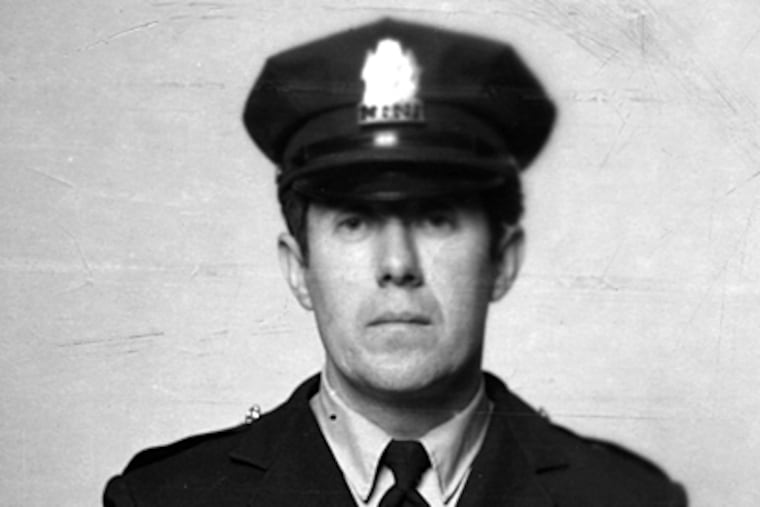Defendant gets life in murder of Officer Trench
A jury in the retrial of Wilfredo Santiago for the execution-style slaying of Police Officer Thomas Trench in 1985 found him guilty this afternoon of first-degree murder.

A jury in the retrial of Wilfredo Santiago for the execution-style slaying of Police Officer Thomas Trench in 1985 found him guilty this afternoon of first-degree murder.
Santiago was later sentenced to life without parole.
Prosecutors maintained that Santiago, harboring a grudge against another police officer, shot Trench, 43, in the face and neck as he sat in a patrol car at 17th and Spring Garden Streets in the early morning of May 28, 1985.
No physical evidence or eyewitnesses linked Santiago, now 44, to Trench's killing, and the prosecution's case depended on circumstantial evidence.
In their closing statements, the defense and the prosecution both focused on the credibility of witnesses who have taken the stand since testimony began May 1.
Many of the witnesses have changed stories, altered details, or contradicted themselves in statements and testimony during other proceedings in the last 23 years.
Defense attorney David Rudovsky argued that because of Santiago's supposed grudge, investigators zeroed in on him from the start and repeatedly shaped their case to fit the theory, including producing law enforcement witnesses who did not emerge until the 1990s.
He said three jailhouse witnesses who said they heard Santiago admit killing Trench had many reasons other than truth to so testify.
Assistant District Attorney Carlos Vega sought to portray two of the jailhouse witnesses, a robber and a murderer who have served their prison terms, as seeking to redeem themselves by telling the truth.
He also made an emotional appeal on behalf of Trench's survivors and the officer who was Santiago's alleged target and remains on the force.
Vega told the jury that a conviction would tell the officer, "No, it's not your fault. "
In seeking to bolster the jailhouse witness who was a murderer, he argued that the ex-convict was more credible than a former chief public defender, now a sitting judge, who had been called to discredit the testimony of another jailhouse informant.
The defense did not dispute that Santiago had access to guns but said the prosecution had not shown that the weapon that killed Trench - which has never been found - was directly linked to him.
Rudovsky said the prosecution case was built "on a foundation of sand. "
Vega said Santiago was a gun-toting, rage-filled tough guy who shot Trench at close range in the dead of the night to avoid having any witnesses.
"It was up close and personal," Vega said. "That shows an intent to kill. "
In instructing jurors, Common Pleas Court Judge René Cardwell Hughes told them it was within their power to "slice and dice" the testimony to determine what was true and to fit the pieces together accordingly.
A jury convicted Santiago in 1986, but an appeals court ordered a new trial in 1991 because of judicial misconduct. The first scheduled retrial was called off when a judge ruled that the prosecution's conduct in the first trial was so egregious that it would be wrong to subject Santiago to another proceeding. An appeals court overturned that decision in 1994, but a series of appeals and motions delayed the retrial until this year.